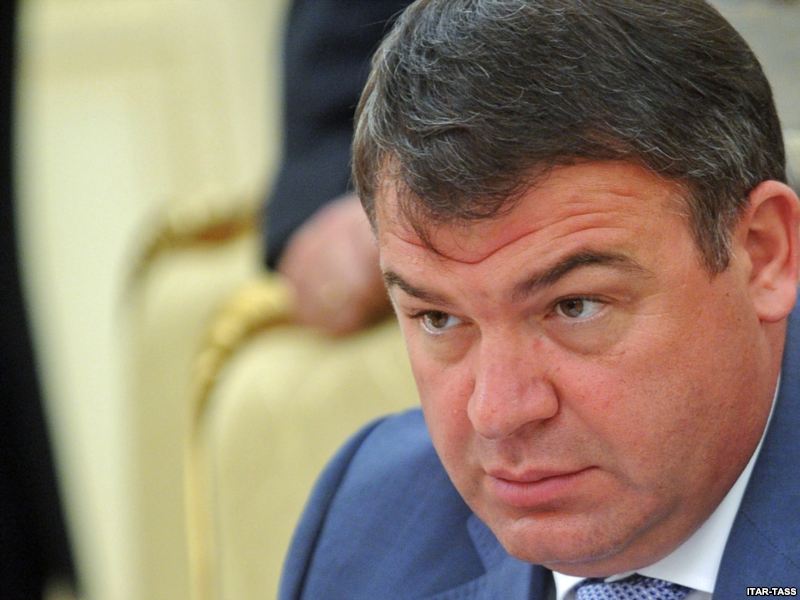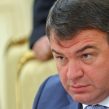
Putin’s Military: Let the Good Times Roll
Publication: Eurasia Daily Monitor Volume: 9 Issue: 46
By:

In the aftermath of the long-anticipated presidential election victory secured by Prime Minister Vladimir Putin on March 4, Russian media coverage of issues related to the future of the Armed Forces emphasize a bright future for the country’s conventional military power. However, as the country awaits some level of reshuffling or recalibrating “team Putin,” there are signs that the Defense Minister and the Chief of the General Staff may be sacrificed in the impending ministerial spring cleaning. Yet, beyond the personality clashes, the Kremlin’s information machinery is struggling to maintain the mirror tricks involved in supporting the complex mythology surrounding the reform of the Armed Forces. Until the deeper underlying issues plaguing these reform efforts are addressed, the mantra of “things will get better” at some point in the future seems to be the last refuge for the reluctant “reformers” (Interfax, March 5).
The Russian officer corps, beleaguered after more than three years of the “new look,” equally awaits the arrival of the real commander-in-chief in the Spring, no doubt nostalgic for the sense of stability that Putin provided for the Russian military following its shambles in the 1990s. But despite Putin’s lengthy article on defense and security in Rossiyskiya Gazeta on February 20, there is no clear indication as to how he might address the chaos left by Anatoliy Serdyukov, if indeed the new Russian President opts for a “clean sweep” in the defense ministry (EDM, February, 28).
Ivan Konev argued in Argumenty Nedeli, always a prime source for speculation and controversy, that the Defense Minister is on notice to leave his post, and the only real question concerns the identity of his successor. However, the nature of the criticism of Serdyukov as well as Rossiya television granting air time to the minister’s opponents offered grounds to consider the rumors more seriously. Konev noted that Serdyukov, albeit a known “team Putin” loyalist, has more recently been at the center of property scandals, inquiries and criminal cases brought against protégés. His image as an “efficient manager,” wherever that veneer was once received, had failed to account for the numbers of homeless officers. Two possible successors were touted: Deputy Defense Minister Aleksandr Sukhorukov and Vice Prime Minister Dmitry Rogozin. The article ended by assuming that the replacement of Serdyukov would necessitate a similar approach to Army-General Nikolai Makarov, the Chief of the General Staff; in which case the likely candidates were Colonel-General Alaksandr Postnikov, the Commander-in-Chief of the Ground Forces and Lieutenant-General Vladimir Shamanov, the Commander of the Airborne Forces (Vozdushno Desantnye Voiska – VDV). Although the former has been relatively quiet in public in recent months, Shamanov is not only a close friend of Putin but has passed retirement age without any decision on promotion (Argumenty Nedeli, February 29). Meanwhile, the recent public spat between Rogozin the civilian and Makarov the army general exposed a deep wound in civil-military relations, suggesting that either the former is awaiting a new appointment or is simply unable to work closely with men in uniform.
An earlier article in Argumenty Nedeli attempted to lend support to the reform of the Armed Forces, and yet found time to highlight its shortcomings, mistakes, blunders and “foolish cadre decisions.” Spetsnaz brigades had been disbanded, the housing issue for discharged officers and warrant officers remained unresolved, and the so-called “permanent readiness brigades” in the Ground Forces allegedly struggle to pass deployment inspections; much of the blame seems to lie with Serdyukov (Argumenty Nedeli, February 24).
As Rogozin has promised miracles in the defense industry and publicly criticized General Makarov, the task of talking up the achievements of the reform fell to General Shamanov. In the near future, echoing the promise by Deputy Defense Minister Nikolai Pankov in October 2011, the Russian military will acquire “master sergeants,” taking on an apparently similar function to their US counterpart in coordinating and controlling the non-commissioned officer (NCO) corps and advising the Defense Secretary and the Chairman of the Joint Chiefs of Staff (Nezavisimoye Voyennoye Obozreniye, RIA Novosti, March 2). The commander of the Airborne Forces was less forthcoming on how higher quality NCOs will be trained and retained within the Armed Forces in sufficient numbers.
In addition to possible improvements within the system of military manpower, Shamanov also attempted to circumvent the challenges of the rearmament plans to 2020 resulting from the creation of the Aerospace Defense Forces (VKO) impacting on the other arms and branches of service by profiling advances within the more lightly armed VDV. In Shamanov’s opinion, Rogozin’s approach to the defense industry will likely prove to be fruitful, with its positive impact anticipated in the VDV within the “very near future.” New artillery systems are under development, and according to the commander of the VDV the airborne forces will be rearmed with such artillery by 2020. In 2011, 75 percent of VDV units were supplied with the new Polet-K automated command and control (C2) equipment, which Shamanov believes will be completed by the end of 2012. The automated C2 equipment will be used by the VDV’s 7th Air Assault Division during the operational-strategic exercise Kavkaz 2012 in September (Nezavisimoye Voyennoye Obozreniye, March 2). Nonetheless, even the simpler task for the defense industry to re-equip the VDV, which Shamanov considers likely to begin in earnest within the next 18 months, appeared to require a level of optimism by his own admission.
The transition within the ruling political duumvirate may mirror a similar process in the defense tandem, through which Serdyukov and Makarov have taken the reform of the Armed Forces since 2008. While reshuffling the personalities involved in these processes may prove an easy fix, the problems stemming from the trickle down of modern equipment and weapons into the conventional Armed Forces will present still deeper challenges to produce a generation of better trained officers, NCOs and soldiers capable of maximizing the benefits of such grand and costly rearmament plans.




